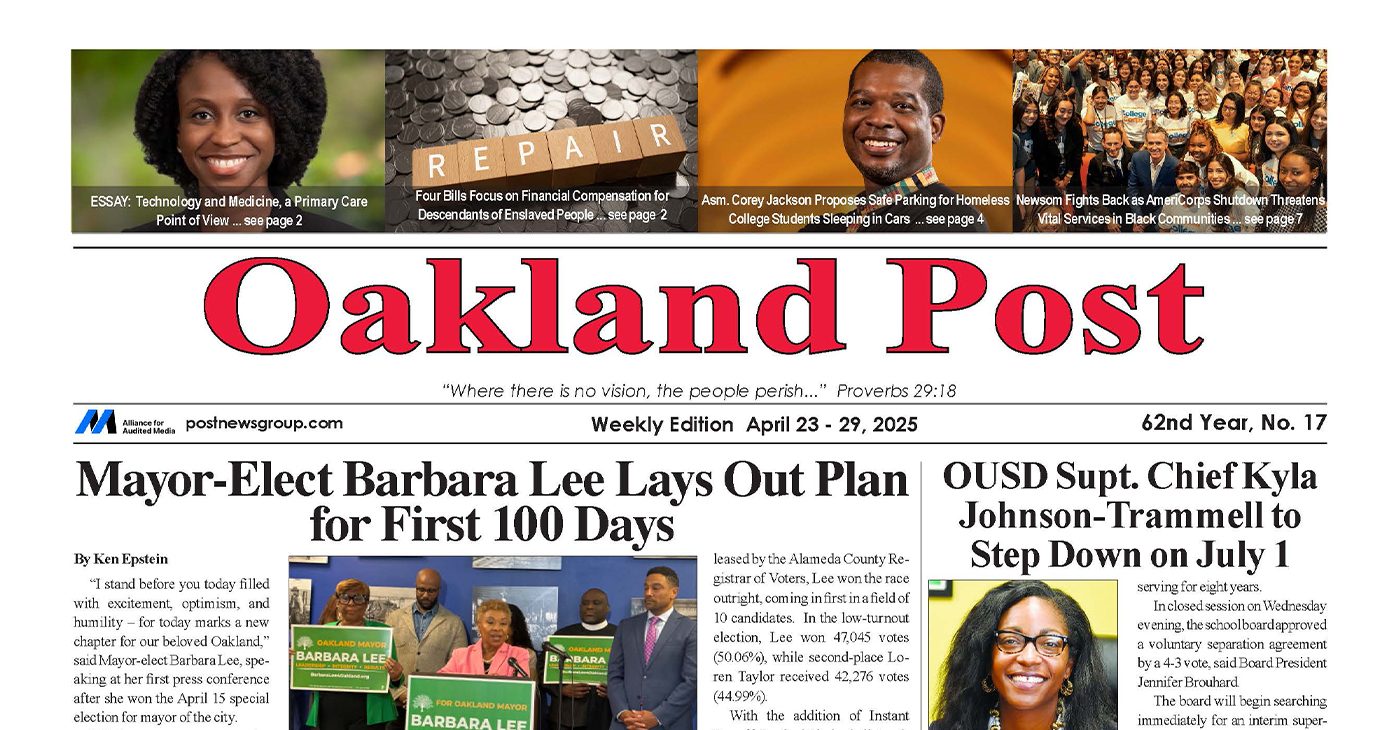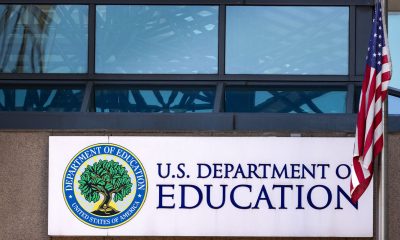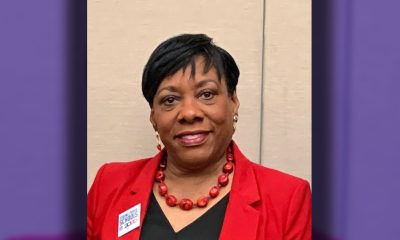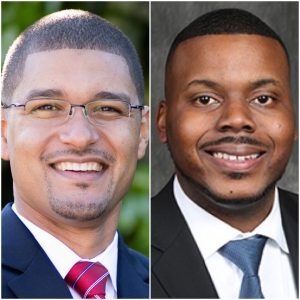Community
Scholarships For San Francisco Youth Who Get COVID-19 Vaccine
City residents ages 12 to 17 are eligible to have their tuition covered at San Francisco State if they have been vaccinated against COVID-19

San Francisco State University (SF State), the San Francisco Department of Public Health (SFDPH) and the San Francisco Unified School District (SFUSD) announced on Monday a new scholarship program for San Francisco residents ages 12 to 17 who received the COVID-19 vaccine.
Through a drawing, SF State is offering 10 scholarships to fully fund four years of undergraduate tuition to the university for eligible youth who register at participating vaccination locations in the City, which include:
- Monday, October 25, 1:00 to 4:00 p.m. — Visitation Valley Neighborhood Vaccination Site, 1099 Sunnydale Ave., San Francisco, CA 94134
- Tuesday, October 26, 3:30 to 6:00 p.m. — Malcolm X Academy School, 350 Harbor Rd., San Francisco, CA 94124
- Wednesday, October 27, 2:30 p.m. to 5:00 p.m. — Balboa High School, 1000 Cayuga Ave., San Francisco, CA 94112
- Friday, October 29, 4:00 to 6:00 p.m. — Ella Hill Hutch Community Center, 1050 McAllister St., San Francisco, CA 94115
- Tuesday, November 2, noon to 4:00 p.m. — Mission District Neighborhood Vaccination Site, 24th and Capp St., San Francisco, CA 94110
- Saturday, November 13, 10:30 a.m. to 1:30 p.m. — McCoppin Elementary School, 651 6th Ave., San Francisco, CA 94118
“These college scholarships are an incredible reward for San Francisco teens doing the right thing for themselves and their community – and that is being a part of ending this pandemic by getting the COVID-19 vaccination,” said Mayor London N. Breed. “Our teens have endured over a year of distance learning and missed interactions with their friends. These scholarships will carry their education forward and help shape their future in innumerable ways.”
“SF State is committed to supporting college attendance among young people in San Francisco and helping to promote the City’s vaccination goals,” SF State President Lynn Mahoney said. “These scholarships can further public health objectives while lifting up a new generation of leaders for our workforce.”
“We encourage all eligible SFUSD students to get vaccinated and to gain the skills necessary to attend college if they so choose,” SFUSD Superintendent Dr. Vincent Matthews said. “As an SF State alumnus and Gator myself, I truly appreciate the University’s efforts to support health and college access among our City’s youth.”
Since becoming eligible for the COVID-19 vaccine in May, more than 90% of San Francisco’s youth ages 12 to 17 have been fully vaccinated, making this one of the highest vaccination rates among age groups in the City.
“The SF State scholarship program complements our City’s strategy to provide low-barrier access to COVID-19 vaccinations in San Francisco communities, which has resulted in one of the highest vaccination rates in the world,” said Deputy Director of Health Dr. Naveena Bobba. “We’re proud that our 12- to 17-year-old youth have reached such high vaccination rates, and incentive programs like these can help give an extra push to unvaccinated individuals to take immediate action to get vaccinated, protecting themselves, their loved ones and our community.”
Scholarships will be awarded in the amount of the difference between qualifying expenses for in-state tuition and fees and other federal and/or state financial aid awarded to the winner. In the event a winner’s federal and/or state financial aid awards fully cover the cost of in-state tuition and fees, the student will be awarded $2,000 per academic year. All scholarships will be credited to the individual’s student account for each semester of enrollment.
Residents are eligible to enter the drawing if they meet all the following requirements:
- Permanently resides in San Francisco (including people living in San Francisco who meet AB 540 eligibility)
- Received at least the first dose of the Pfizer COVID-19 vaccine two-shot series prior to entry. Must be age 12 to 17 when this occurs
- Currently not enrolled at a college or university nor have been previously been enrolled in college or university
- Not an employee or immediate family of an employee of SF State living as a member of the employee’s household. Consistent with California Government Code section 82029, “immediate family” means spouse and dependent children
Residents can receive the vaccine from the participating sites to become eligible, but it is not required. Residents who receive the vaccine elsewhere or are already vaccinated are eligible to register for the drawing.
How to enter
Eligible residents will have the opportunity at the participating sites to complete a form that enters them in the drawing. SF State staff will be there to verify that registrants qualify and to help residents enter the drawing. The last day to enter the drawing is November 13.
Selecting the winners
The winners will be randomly selected from among all eligible entries received. A minimum of one and a maximum of two winners will be selected from each participating vaccination locations.
The official announcement of the winners will publish the week of November 22. Winners will be notified prior to announcement.
For more information regarding the official rules, FAQs and health privacy, visit together.sfsu.edu/vaccinescholarship or email enrollment@sfsu.edu.
Activism
Oakland Post: Week of April 23 – 29, 2025
The printed Weekly Edition of the Oakland Post: Week of April 23 – 29, 2025

To enlarge your view of this issue, use the slider, magnifying glass icon or full page icon in the lower right corner of the browser window.
#NNPA BlackPress
Chavis and Bryant Lead Charge as Target Boycott Grows
BLACKPRESSUSA NEWSWIRE — Surrounded by civil rights leaders, economists, educators, and activists, Bryant declared the Black community’s power to hold corporations accountable for broken promises.

By Stacy M. Brown
BlackPressUSA.com Senior National Correspondent
Calling for continued economic action and community solidarity, Dr. Jamal H. Bryant launched the second phase of the national boycott against retail giant Target this week at New Birth Missionary Baptist Church in Atlanta. Surrounded by civil rights leaders, economists, educators, and activists, Bryant declared the Black community’s power to hold corporations accountable for broken promises. “They said they were going to invest in Black communities. They said it — not us,” Bryant told the packed sanctuary. “Now they want to break those promises quietly. That ends tonight.” The town hall marked the conclusion of Bryant’s 40-day “Target fast,” initiated on March 3 after Target pulled back its Diversity, Equity, and Inclusion (DEI) commitments. Among those was a public pledge to spend $2 billion with Black-owned businesses by 2025—a pledge Bryant said was made voluntarily in the wake of George Floyd’s murder in 2020.“No company would dare do to the Jewish or Asian communities what they’ve done to us,” Bryant said. “They think they can get away with it. But not this time.”
The evening featured voices from national movements, including civil rights icon and National Newspaper Publishers Association (NNPA) President & CEO Dr. Benjamin F. Chavis Jr., who reinforced the need for sustained consciousness and collective media engagement. The NNPA is the trade association of the 250 African American newspapers and media companies known as The Black Press of America. “On the front page of all of our papers this week will be the announcement that the boycott continues all over the United States,” said Chavis. “I would hope that everyone would subscribe to a Black newspaper, a Black-owned newspaper, subscribe to an economic development program — because the consciousness that we need has to be constantly fed.” Chavis warned against the bombardment of negativity and urged the community to stay engaged beyond single events. “You can come to an event and get that consciousness and then lose it tomorrow,” he said. “We’re bombarded with all of the disgust and hopelessness. But I believe that starting tonight, going forward, we should be more conscious about how we help one another.”
He added, “We can attain and gain a lot more ground even during this period if we turn to each other rather than turning on each other.” Other speakers included Tamika Mallory, Dr. David Johns, Dr. Rashad Richey, educator Dr. Karri Bryant, and U.S. Black Chambers President Ron Busby. Each speaker echoed Bryant’s demand that economic protests be paired with reinvestment in Black businesses and communities. “We are the moral consciousness of this country,” Bryant said. “When we move, the whole nation moves.” Sixteen-year-old William Moore Jr., the youngest attendee, captured the crowd with a challenge to reach younger generations through social media and direct engagement. “If we want to grow this movement, we have to push this narrative in a way that connects,” he said.
Dr. Johns stressed reclaiming cultural identity and resisting systems designed to keep communities uninformed and divided. “We don’t need validation from corporations. We need to teach our children who they are and support each other with love,” he said. Busby directed attendees to platforms like ByBlack.us, a digital directory of over 150,000 Black-owned businesses, encouraging them to shift their dollars from corporations like Target to Black enterprises. Bryant closed by urging the audience to register at targetfast.org, which will soon be renamed to reflect the expanding boycott movement. “They played on our sympathies in 2020. But now we know better,” Bryant said. “And now, we move.”
#NNPA BlackPress
The Department of Education is Collecting Delinquent Student Loan Debt
BLACKPRESSUSA NEWSWIRE — the Department of Education will withhold money from tax refunds and Social Security benefits, garnish federal employee wages, and withhold federal pensions from people who have defaulted on their student loan debt.

By April Ryan
Trump Targets Wages for Forgiven Student Debt
The Department of Education, which the Trump administration is working to abolish, will now serve as the collection agency for delinquent student loan debt for 5.3 million people who the administration says are delinquent and owe at least a year’s worth of student loan payments. “It is a liability to taxpayers,” says White House Press Secretary Karoline Leavitt at Tuesday’s White House Press briefing. She also emphasized the student loan federal government portfolio is “worth nearly $1.6 trillion.” The Trump administration says borrowers must repay their loans, and those in “default will face involuntary collections.” Next month, the Department of Education will withhold money from tax refunds and Social Security benefits, garnish federal employee wages, and withhold federal pensions from people who have defaulted on their student loan debt. Leavitt says “we can not “kick the can down the road” any longer.”
Much of this delinquent debt is said to have resulted from the grace period the Biden administration gave for student loan repayment. The grace period initially was set for 12 months but extended into three years, ending September 30, 2024. The Trump administration will begin collecting the delinquent payments starting May 5. Dr. Walter M. Kimbrough, president of Talladega College, told Black Press USA, “We can have that conversation about people paying their loans as long as we talk about the broader income inequality. Put everything on the table, put it on the table, and we can have a conversation.” Kimbrough asserts, “The big picture is that Black people have a fraction of wealth of white so you’re… already starting with a gap and then when you look at higher education, for example, no one talks about Black G.I.’s that didn’t get the G.I. Bill. A lot of people go to school and build wealth for their family…Black people have a fraction of wealth, so you already start with a wide gap.”
According to the Education Data Initiative, https://educationdata.org/average-time-to-repay-student-loans It takes the average borrower 20 years to pay their student loan debt. It also highlights how some professional graduates take over 45 years to repay student loans. A high-profile example of the timeline of student loan repayment is the former president and former First Lady Barack and Michelle Obama, who paid off their student loans by 2005 while in their 40s. On a related note, then-president Joe Biden spent much time haggling with progressives and Democratic leaders like Senators Elizabeth Warren and Chuck Schumer on Capitol Hill about whether and how student loan forgiveness would even happen.
-

 Activism4 weeks ago
Activism4 weeks agoOakland Post Endorses Barbara Lee
-

 Activism4 weeks ago
Activism4 weeks agoOakland Post: Week of March 28 – April 1, 2025
-

 Activism3 weeks ago
Activism3 weeks agoOakland Post: Week of April 2 – 8, 2025
-

 #NNPA BlackPress3 weeks ago
#NNPA BlackPress3 weeks agoTrump Profits, Black America Pays the Price
-

 Activism2 weeks ago
Activism2 weeks agoOakland Post: Week of April 9 – 15, 2025
-

 #NNPA BlackPress3 weeks ago
#NNPA BlackPress3 weeks agoHarriet Tubman Scrubbed; DEI Dismantled
-

 #NNPA BlackPress3 weeks ago
#NNPA BlackPress3 weeks agoTrump Targets a Slavery Removal from the National Museum of African-American History and Culture
-

 #NNPA BlackPress3 weeks ago
#NNPA BlackPress3 weeks agoLawmakers Greenlight Reparations Study for Descendants of Enslaved Marylanders


























































